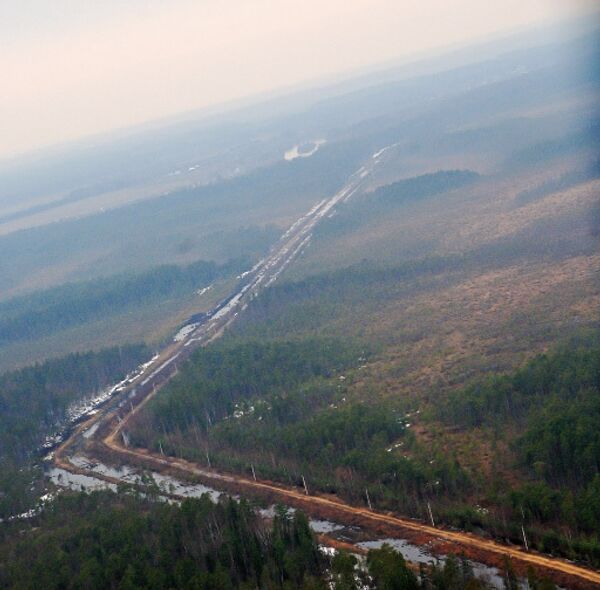KIEV, July 14 (RIA Novosti) - Ukraine welcomed the launch of the Nabucco gas pipeline project intended to pump gas to Europe bypassing Russia and said it was ready to join, a deputy head of the Ukrainian president's secretariat said on Tuesday.
An intergovernmental agreement on the transit of Caspian gas to Europe was signed on Monday in Turkey at a ceremony attended by European Commission President Jose Manuel Barroso and officials from about 20 countries.
"Ukraine as the initiating country behind the creation of the Caspian-Black Sea-Baltic energy space...positively assesses the signing of the inter-governmental agreement on the construction of the Nabucco gas pipeline," Andrei Honcharuk said.
The project, estimated at $7.9 billion, is designed to pump Central Asian gas via Turkey to Austria and Germany through Bulgaria, Romania and Hungary. The pipeline is planned to go on stream in 2014.
Among the potential gas suppliers for the pipeline are Azerbaijan, Uzbekistan, Turkmenistan, Iran and Iraq.
Honcharuk said that Nabucco will improve access for European countries, including Ukraine, to gas resources from the Caspian Sea region amid growing natural gas consumption and, therefore, the ex-Soviet republic is interested in joining the project at all the stages, "from design to operation."
Honcharuk said the project's implementation would bring about geopolitical shifts in the region and substantially change the regional infrastructure of natural gas transportation.
The Nabucco pipeline is seen as a rival to the Moscow-backed South Stream project designed to annually pump 31 billion cubic meters of Central Asian and Russian gas to the Balkans and onto other European countries, with the pipeline's capacity expected to be eventually increased to 63 billion cubic meters annually.
Europe has expressed concerns about being dependent on Russia, which supplies a quarter of its gas needs. Calls for diversified supplies intensified following a recent bitter price dispute between Russia and Ukraine in early 2009, when Moscow cut off gas to Ukraine, affecting consumers across Europe.
Moscow has argued, however, that South Stream and Nord Stream would cut EU dependence on transit states like Ukraine and improve European energy security.

